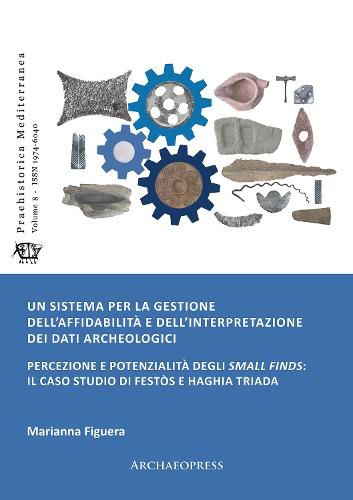Readings Newsletter
Become a Readings Member to make your shopping experience even easier.
Sign in or sign up for free!
You’re not far away from qualifying for FREE standard shipping within Australia
You’ve qualified for FREE standard shipping within Australia
The cart is loading…






Un sistema per la gestione dell'affidabilita e dell'interpretazione dei dati archeologici aims to identify the methodological problems associated with digitalized management of archaeological data and to introduce viable solutions that embrace interpretative aspects and the reliability concept. The work develops into a prototype system that manages the data regarding what are referred to as small finds dating back to the palatial periods from the Cretan sites of Phaistos and Ayia Triada which have been studied by the Italian Archaeological Mission since the early 20th century. The analysis of the data highlighted the value of this system and its ability to adapt to the needs of the archaeologist. It provides tools capable of assisting and implementing the interpretation of archaeological data well outside the findings and sites specific to this project for the management of other categories of archaeological finds and of any context. The book can furnish practical and theoretical contributions capable of feeding the methodological debate inherent in issues such as the treatment of sources, legacy data, reuse, the management of uncertainty, and of the rational and intuitive variables inherent in archaeological work, as well as the assessment of the reliability of an interpretative event.
$9.00 standard shipping within Australia
FREE standard shipping within Australia for orders over $100.00
Express & International shipping calculated at checkout
Un sistema per la gestione dell'affidabilita e dell'interpretazione dei dati archeologici aims to identify the methodological problems associated with digitalized management of archaeological data and to introduce viable solutions that embrace interpretative aspects and the reliability concept. The work develops into a prototype system that manages the data regarding what are referred to as small finds dating back to the palatial periods from the Cretan sites of Phaistos and Ayia Triada which have been studied by the Italian Archaeological Mission since the early 20th century. The analysis of the data highlighted the value of this system and its ability to adapt to the needs of the archaeologist. It provides tools capable of assisting and implementing the interpretation of archaeological data well outside the findings and sites specific to this project for the management of other categories of archaeological finds and of any context. The book can furnish practical and theoretical contributions capable of feeding the methodological debate inherent in issues such as the treatment of sources, legacy data, reuse, the management of uncertainty, and of the rational and intuitive variables inherent in archaeological work, as well as the assessment of the reliability of an interpretative event.